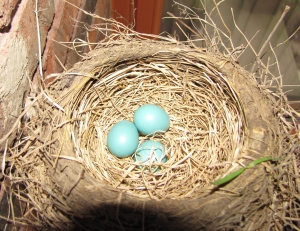No, I don’t want anyone to break the law; but there is a way to find great story and poem ideas in someone else’s mail. Check out your nearest flea market or antique store and see if they have any old postcards–old used postcards. Though ideas for stories and poems can be found in the pictures, inspiration awaits in the writing on the other side. These notes from real people to real people are an Aladdin’s treasure cave full of humor, pathos, mystery, bravado, family life, and love.
Here are some of my finds. See what stories or poems you can conjure up from these real-life messages from the past.
One card, addressed to Mrs. Arthur Ridgewell and dated 1907, reads: “I suppose you are still in Plaster Rock. Heard that Frank 1st has left you. I guess he must be a wanderer.”
Like all good story openings. this card leaves the reader with lots of questions. And when the reader is a writer, a story is bound to follow. Who is Frank 1st? (And, for that matter, who is Frank 2nd?) Why did he wander before? Why did he come back? Why is he leaving again? Where is he likely to go? The word ‘still’ seems important to the writer. Where, other than Plaster Rock, should Mary be? What is the relationship between the sender and the writer?
A card from Vancouver, dated 1911 and addressed to a Miss McLeod in P.E.I., reads: “How soon do you think you can leave College to come west? You are needed very badly as chaperone and we would be more than pleased to have you with us.”
More questions: What was Miss McLeod studying in college or was she a teacher? What kind of person would think it perfectly acceptable for a woman to leave college, head west, and become a chaperone? Why would the sender need a chaperone ‘badly? Why is there no salutation to the note–no Dear…? What social milieu are we dealing with here? Is the sender wealthy and is Miss McLeod a poor relation?
The following card is posted from Winnipeg in January 1909 and addressed to Mrs. Sharpe in Listowel, Ontario. “Just a line to thank you for the nice Xmas cards you sent. We were too poor to send anyone anything this winter as Will’s work will be done this week. Things are dreadful dull and it is so dreadfully cold, about 42 below. We did not go far when it was that cold. Dick and Elsie are well. He is working steady. How is Clarence? Remember me to him. Love to all from all. Sade”
Think of how Sade must have felt writing that her family was too poor to send Christmas cards. The postage on the postcard was one cent and though the card was dated January 1st, it wasn’t mailed until the 8th. Did Sade have to wait that long to get the postage or was it just too cold to go out? Who are these people and what work might they be doing? The card is addressed to Mrs. Fred Sharpe; then, who is Clarence and why does Sade wish to be remembered to him? What if he is a brother of Mrs. Sharpe that Sade was fond of once, or perhaps Mrs. Sharpe is Sade’s sister and Clarence is Sade’s nephew. Put yourself in Sade’s shoes while she is writing this card or in Mrs. Sharpe’s when she hears such sad news from her friend. Maybe Mrs. Sharpe is a relative of Sade’s husband and Sade is hinting for her husband to be rescued from unemployment in Winnipeg and offered work in the family business in Listowel.
If you are a poet, think of the wonderful ‘found poems’ that are waiting for you in these postcards. You could weave a poem like the following:
Winnipeg, 1909
Just a line to thank you
for the nice Xmas cards you sent.
We were too poor
to send anyone
anything.
Things are dreadful dull
and it is so dreadfully cold.
How is Clarence?
Remember me to him.
Sade
I paid three dollars for those postcards and have covered a couple of pages in my journal with possible ideas from each one–a small investment in inspiration. Consider what some postcards could do to fire your imagination or help you break out of one of those (thankfully rare) cement-brained-writer’s days?
Inspiration on a postcard? Why not? Find the wonderful stories and poems that are possible when your writer’s imagination meets someone else’s mail.
Like this:
Like Loading...
 It’s the end of a great week in Southampton. I’ve had the pleasure of working with three young writers and seeing their creativity at work at the Southampton Art School. I also got to share my classroom with artist, Mark Thurman, and watch the progress of his cartooning students and enjoy the walls filled with his illustrations.
It’s the end of a great week in Southampton. I’ve had the pleasure of working with three young writers and seeing their creativity at work at the Southampton Art School. I also got to share my classroom with artist, Mark Thurman, and watch the progress of his cartooning students and enjoy the walls filled with his illustrations.




